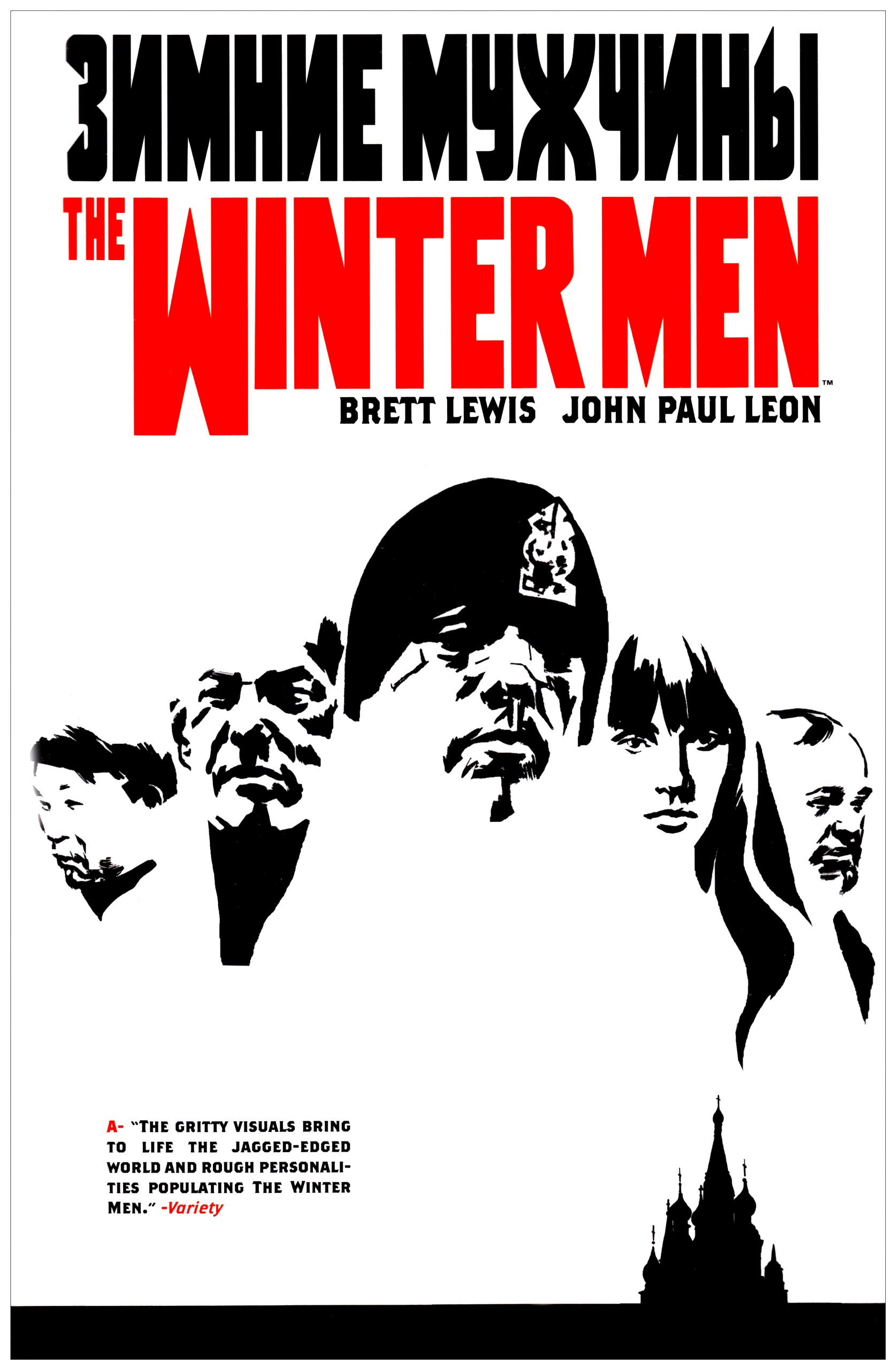Winter is not Coming, it’s been here.
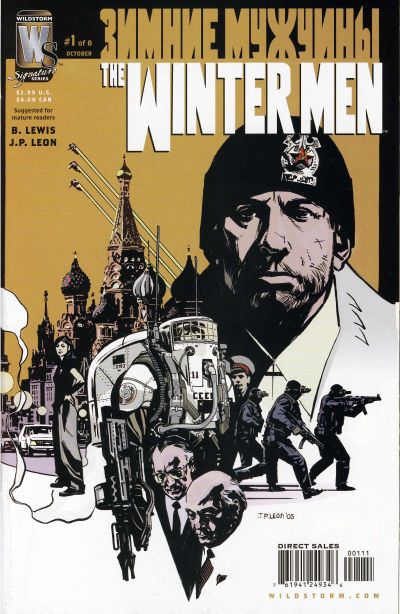
An analysis of The Winter Men by
Brett Lewis and John Paul Leon.
I recall when this book first came out, in 2005, I was very excited to see Leon’s artwork again. He had done Earth X, with Alex Ross and Jim Krueger a few years prior, which I felt at the time Leon’s art was fresh and stylish. I bought the first issue but didn’t continue with the five-part mini-series, for some unknown reason. I think I couldn’t find issue #2, so I decided to “wait for the trade” and there is sat on my list of trades to get for years. Recently I finally made good and picked it up. It did not disappoint in the least.
Today we are going to perform a deep-dive on the miniseries and Winter special collected in the trade paperback published originally by Jim Lee and Brandon Choi’s Wildstorm Productions which had become an imprint of DC Comics in 1999.
I’ll start with the following synopsis: In the modern, post-collapse Soviet Union, criminal gangs rule under the aegis of a crumbled government, and old soldiers roam the streets…as do old superheroes. One such man is Kris Kalenov, a former member of the Russian elite military force ‘Red 11’, now a Moscow policeman. Caught up in a kidnapping case, Kalenov encounters the dark heart of the New Russia at every turn, bringing him into conflict and allegiance with friends and enemies alike as he searches for both a missing girl and the secret of the Soviet super-project codenamed ‘Winter’. Author Brett Lewis and artist John Paul Leon (“Static”) present a tour-de-force graphic novel soaked in vodka, blood, and sweat.
First off I will say, this book is dense. At 176-pages, it’s surprisingly thick, full of story and characters. There’s a lot of plot and to absorb everything, you probably need to really pay attention or read it twice. You don’t read this book in bed before you go to sleep, you need all your facilities to capture what these creators are doing here. The setting and Russian culture presented in this book feels real and has depth, at times it’s novelistic in its approach. There are so many details in this book, the first impression you get is that Brett knows what he’s writing about. He’s either lived it, or researched it thoroughly, and that’s the kind of writing that resonates with me.

We start off with a couple of pages of background and set up. We establish the world, Russia’s current climate and this idea of a post-superhero world. Then our inciting incident, the kidnapping of a young girl. Then we move into a great introduction of our main protagonist, Kris, drunk in the snow. That alone tells us so much, this introduction, that’s the way you introduce characters.
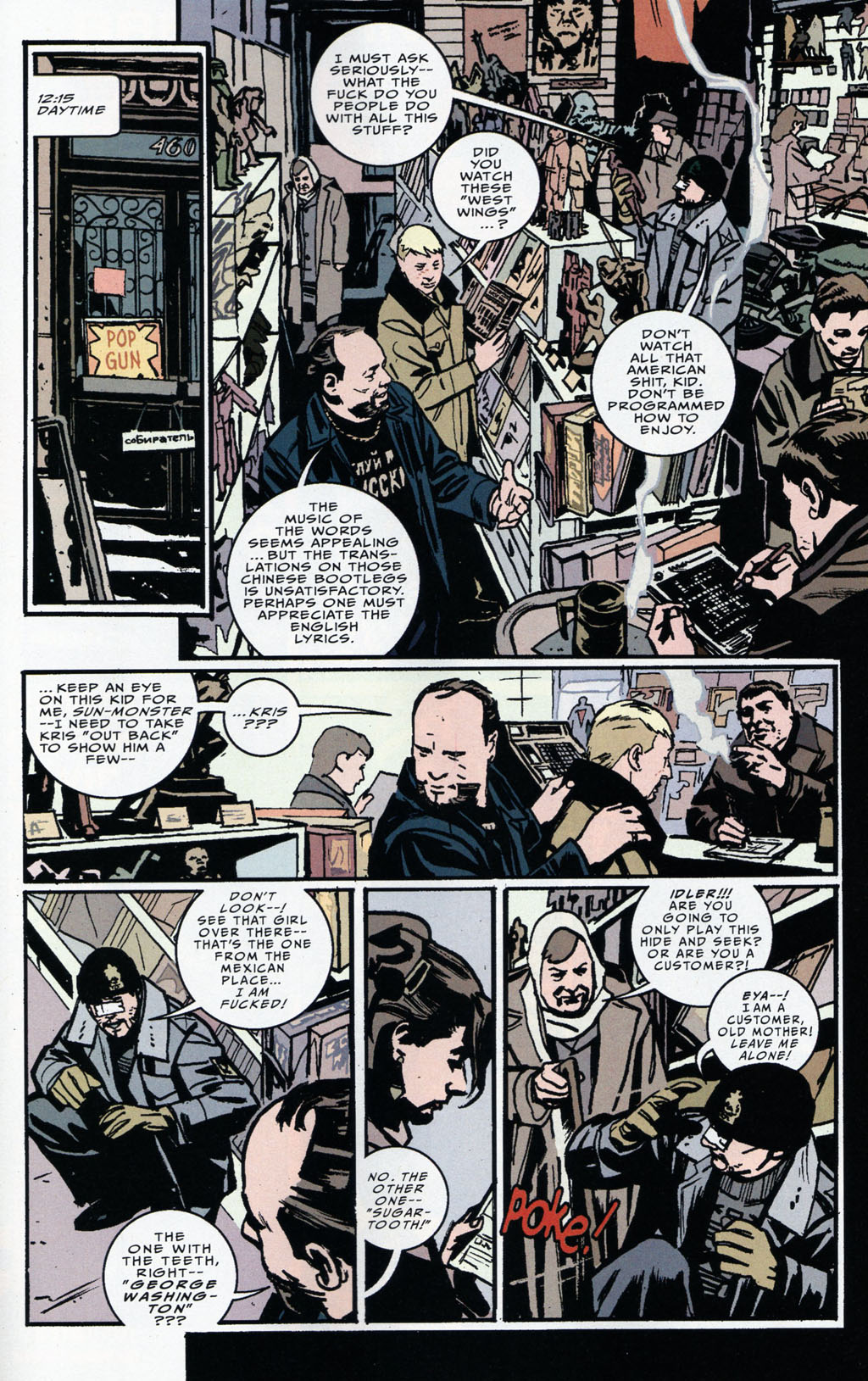
The plot continues and we learn about the four special ops team members, who have scattered into their own niche as post-”tank men”, Drost, Nina, Nikki and we get the only mention of the Siberian.
This story feels perfect for John Paul’s artstyle. He has a great sense of depth and every background is carefully rendered with and designed like a feature film set decorator. His figures have that geometric look, but they are still realistic and expressive. His lines are strong, I love the brush work and black spotting. I can not confirm this, but I do believe that one of his big influences is the legendary artist, Alex Toth. If you are unfamiliar with Toth’s work, please do yourself a favor and look him up.
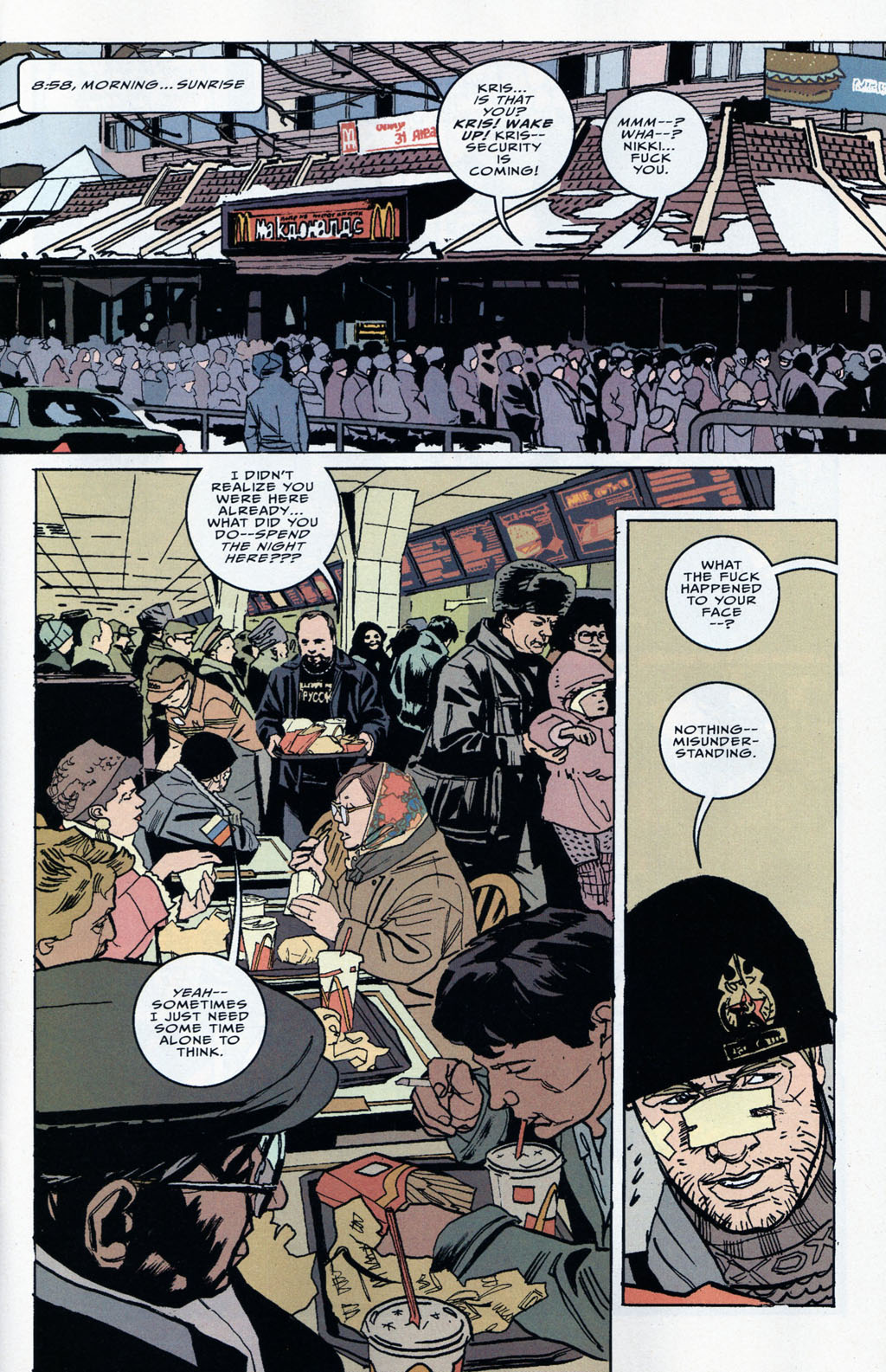
Along with the line art, we must mention the colors. The muted colors by Dave Stewart and Melissa Edwards are now trademarks of Stewart’ style, but back in 2005 it was fresh and original. Books that were colored by Stewart at this time, 100 Bullets (Vertigo Comics) being another example, added emotion and value to the scenes and really works well with the story’s tone and atmosphere. All in all, this is some of the best art for this genre of story.

The dialog. It would be a crime to talk about Winter Men and not talk about Brett’s dialog. It is spectacular. He blends American colloquialisms into the Russian slang in the dialog and it feels so authentic and real. This doesn’t sound like a script, with punctuated, staccato lines. This reads the way people talk. I love the fact that the English isn’t quite correct, but it sounds just like what a person who learned by watching TV or through a quick military course would sound like. There’s also this layer of East vs. West fascination with America that these Russians have and at times this is where the comedy draws from.
We continue the story, and now Kris is in Brooklyn, tracking down this young girl that was abducted. The story really clips along, it wastes no time in Kris joining the local Mafiya, going through their rituals and then him betraying them in pursuit of his mission, to find this girl. Brett switches it up again, we don’t stay in America for long, Kris heads back to Mother Russia to finish the job.
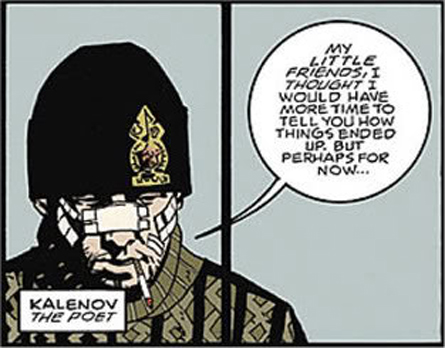
It’s not all fun & games and globe-trotting, there is some human element to the tale. We see Kris is ineffectual in relationships, there is a subplot about his ex-wife, she leaves him and she comes back into the story in the third act. Winter Men is a gritty crime noir story, almost like a Parker book, he’s tough, wears bandages on his face, ala Sin City, gets drunk and has sex. Nothing is held back, it’s real and visceral, but also has heart, especially in a scene when Drost, the tough, military man finds his wife murdered and we see that even the toughest S.O.B. has a heart.
While we head into the third act, we shift focus to the mysterious Siberian, in a great couple of pages we get his story and penchant for murder. While that is going on, Kris meets his estranged wife, have a marital one-night stand. The encounter didn’t change how she feels, there’s no reconciliation. Brett hammers home that Kris, “The Poet”, is a loser in the game of life in many ways, and relationships is one of them. We can assume that it’s a byproduct of his lifestyle of drinking, womanizing and murder as a Spetsnaz and the years after, but Brett does a great job of never hitting us over the head with that. We infer that from the characters actions, not through dialog or narration, another “pro” move in storytelling.
There’s some great action at the end, and in the culminating battle, it is cut with flashbacks of the “tank-men” and the Russian super-hero that they were to contain, some 20 years in the past. It ends exactly how we would want it, there’s no pot of gold and happily, ever after, that kind of fairy tales doesn’t happen in Russia. Kris is alone sitting with Drost’s dogs on a bench. Maybe it will warm up soon.
Publishing history: The series was scaled back to five issues, there may have been more planned, but I couldn’t confirm how many issues the original story idea was. Two years later after issue #5 they published the Winter Special, which was a 40-page on-shot that finished up the story. All six issues are collected in the trade that was published by Widstorm in 2009. One year later is was published by Titan Books in 2010. These are the only two publications of this story as of today.
What a great and dense read! I highly recommend it. The art and writing are top notch. It’s been out of print for some time, but it’s not that hard to track down. Do yourself a favor, grab a beverage of choice and sit down for a couple of hours with The Winter Men, you won’t regret it.
Written by Andres Salazar. Andres is the writer and publisher of the horror-western series, Pariah, Missouri. www.pariahmissouri.com
